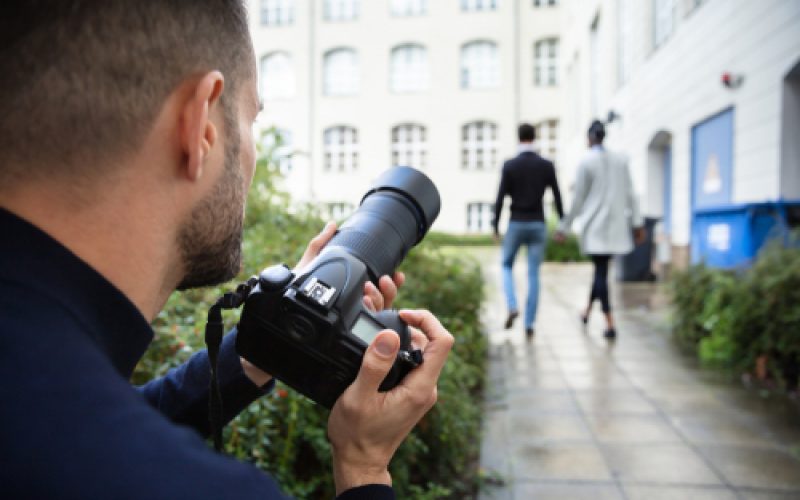Technology has evolved so anyone can record pictures, video, and speech into the palm of their hand. The same technology that allows your smartphone camera and microphone to be small, portable, and discreet can create covert surveillance devices that are more sensitive and accurate, inexpensive to obtain, and easier to conceal because of their small size.
Unfortunately, devices such as this may be used against you in nefarious ways. This includes casing your home prior to a robbery, obtaining personal information and stealing your identity, obtaininf passwords to interfere with your online activity, or obtaining proprietary information from your business.
If you believe you may be the target of surveillance for criminal purposes, there are ways that you can put a stop to it. Collectively, these methods are known as counter surveillance. There are simple counter surveillance measures that you can perform on your own. However, for more sophisticated counter surveillance measures, including the detection of electronic surveillance devices, you often need the assistance of a counter surveillance professional, such as a private investigator.
What Is the Purpose of Counter Surveillance?
Counter surveillance involves taking measures to prevent others from monitoring your activities. You may do this in the interest of safeguarding the following:
- Safety
- Privacy
- Commercial interests
In other words, counter surveillance can protect you and your family on a personal level, or you can use it to protect your business and employees from people looking to steal trade secrets, financial records, or proprietary information.
What Steps Can You Take Against Different Forms of Surveillance?
The counter surveillance measures you employ depends upon the type of surveillance that is being used against you. The more elaborate the surveillance method, the more sophisticated the counter surveillance method used to neutralize it must be.
The different types of surveillance that you may encounter include the following:
Physical Surveillance
This is probably the oldest method of surveillance. In fact, it is still commonly used. Physical surveillance involves someone watching from a distance to observe activities and learn patterns of behavior. This can take the form of a tail, i.e., a person who follows you around as you go about your day. This surveillance activity is also known as foot surveillance. Fixed surveillance occurs when a person stays in a particular location, e.g., outside your home or place of business, to observe your activities.
You do not always need to take elaborate measures to counteract physical surveillance. One of the simplest counter surveillance measures you can perform is simply looking over your shoulder. Other basic measures against physical surveillance include the following:
- Becoming nondescript
- Varying your routine
- Being discreet
- Guarding your privacy
Computer Surveillance
This is one of the most recent forms of surveillance, and advancing technology keeps making it easier. By installing malware on your computer, it is a relatively simple matter to access computers to observe online activities or obtain private records remotely.
Cyber security measures to combat computer surveillance include the following:
- Using a screen protector that prevents others from reading over your shoulder
- Locking your computer when not in use
- Installing a strong firewall
- Conducting frequent malware scans
- Choosing strong passwords
Remember, computer surveillance can also take place on other devices, such as smartphones or tablets. The same or similar counter surveillance measures can be effective against this.
Electronic surveillance
This involves the installation of cameras or listening devices inside your home or office to record your activity. The goal of these devices is to be surreptitious, meaning that they are very difficult to find even if you have reason to look for them. They are not impossible to locate, but they often require electronic detection equipment to locate.
Another form of electronic surveillance is a GPS tracking device. While recording and monitoring devices can only track your activities when you are in a certain vicinity, a GPS tracker allows others to observe and follow your movements.
How Does Electronic Counter Surveillance Work?
Sweeping is the colloquial term for attempts to locate electronic surveillance devices. Sweeping devices work by seeking out sources of radio waves and other forms of electromagnetic radiation. Most recording or monitoring devices, no matter how small, emit radiation in some form.
Another form of electronic counter surveillance takes place by installing and maintaining covert security cameras in and around your home or business. It is a good idea to consult a counter surveillance professional, like ACS Professional Investigations, to ensure that you are compliant with any applicable laws. Contact a Specialist today (248) 363-1360



